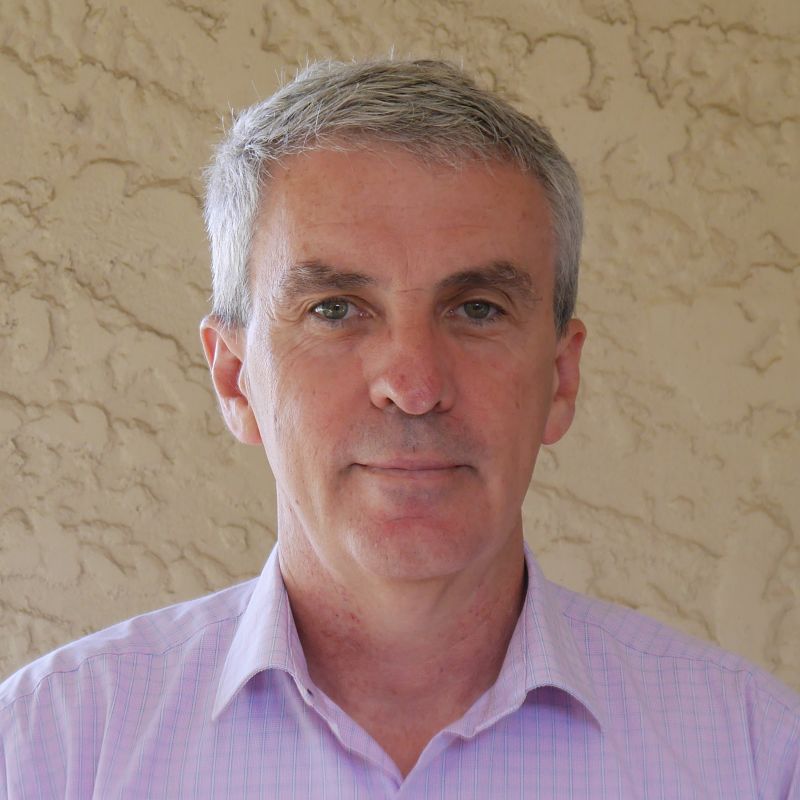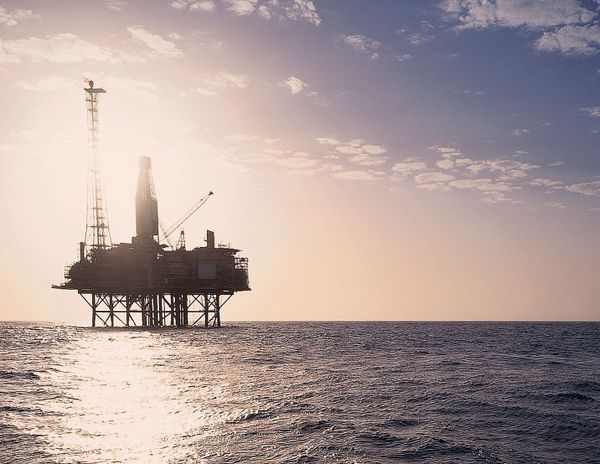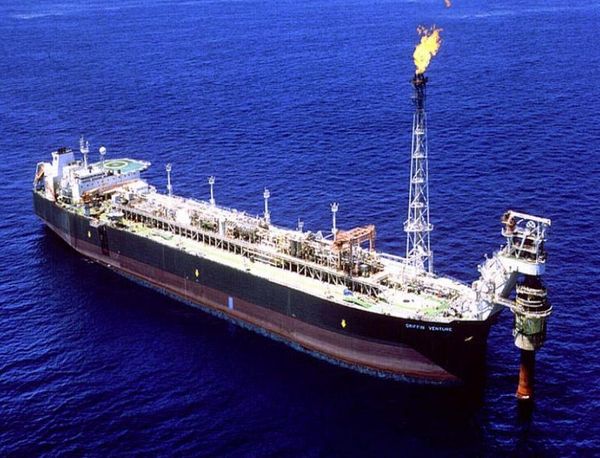Kerry Stokes loses $150M on reserves downgrade
• & Alinta pushes big wind to displace coal in WA •
Good morning,
Alinta Energy sees more wind as the perfect counterpart to rooftop solar that saw 300MW of panels installed in 2020.
It is a very different outlook to the prolonged use of gas and coal pushed by the State Government.
Together with its plans for a $100 million big battery, Alinta has big plans for WA.
READ the full story: Alinta plans more wind to partner WA solar boom
Last Friday I wrote about Inpex planning to increase emissions from Ichthys LNG, which accounts for three-quarters of corporate emissions, by 30% while promising to cut those corporate emissions by 30%.
Another tale of corporate greenwashing that I'm mentioning again as I think a few people missed it last week, distracted by the impending lockdown.
READ the full story: Ichthys gas supply plans to destroy Inpex emissions pledge
I've updated my analysis of WA's top greenhouse gas-emitting projects, companies and commodities because - oops - there were a few small errors. I take accuracy seriously - if you ever see any mistakes please tell me and they will be fixed and noted in the story.
Have a look - it reveals some big polluters that have been very successful in keeping a low profile.
READ the full story: WA’s top carbon polluters: LNG, power, iron ore and alumina
Beach Energy shares are down 23% at 10 am this morning after water ingress at its Western Flank oil fields in the Cooper Basin, leading to a downgrade of oil and gas reserves.
Thoughts and prayers to Kerry Stokes who has lost about $150 million this morning.
Mitsui, Beach's partner in the Perth Basin Waitsia project, has bought 28% of a nearby field from Norwest Energy and will take over operatorship.
Buru Energy is looking to equity markets for up to $20 million to finance more exploration in the Canning Basin. The drilling of the first of two wells is expected to start in June, with partner Origin Energy picking up most of the tab.
Total chief financial officer Jean-Pierre Sbraire has described the MOU signed last week between 30%-owned Total Eren and Province Resources to investigate an eight-gigawatt hydrogen project in the Gascoyne as at a "very, very early stage."
Woodside executive vice president operations Fiona Hick is the new chair of the resource lobby group, the Chamber of Minerals and Energy of WA.
The CME has drawn flak for saying its members could not get projects approved if environmental standards were raised. The CME responded to an independent review led by former competition watchdog boss Graeme Samuel who found existing arrangements had failed to protect the environment.
It is another case of resource companies and their lobby groups playing good cop / bad cop. Miners and gas companies spend millions of dollars on feel-good advertising featuring solar panels, trees and beautiful people. At the same time, they finance groups like the CME and APPEA to undermine any real progress.
Woodside will soon own 82% of its Sangomar oil project in Senegal after FAR shareholders approved the sale of its 14%. Freed of troublesome minority shareholders, Woodside now wants to sell down to about half its current equity on the $US4.6 billion project.
The money will come in handy for Scarborough, which received a boost this week after Total announced its $US20 billion LNG project in Mozambique would be delayed by at least a year due to the political violence in the area.
Also helpful is South Korea's energy ministry expecting its LNG demand to rise 15% by 2034. It is only about 1% a year, but better than a decline.
Santos has completed the sale of 25% of the Darwin LNG plant and the rapidly depleting Bayu Undan field to SK Group. SK wanted a stake in the LNG plant to match its interest in the incredibly carbon-intensive Barossa field that will use the Darwin plant.
In the same week, the South Korean giant's subsidiary SK Innovation raised $US2billion to expand battery manufacturing capacity for electric vehicles. Straddling the energy transition fence, it seems.
Following on from last week's story about Shell's atrocious level of flaring at its Prelude floating LNG vessel, data from the World Bank reveals an extraordinary 142 billion cubic metres of gas was flared last year. Australian flaring did reduce in 2020, mainly due to fewer operational issues at Ichthys and Prelude.
The decline of Bayu Undan is a disaster for Timor-Leste. As the AFR puts it today, it will soon be "running on fumes" with the Sunrise field's development, with Woodside unlikely after delays, disagreements on development options, and a shrinking window for greenfield LNG projects.
Who knows, maybe Woodside will get desperate and propose floating LNG as a compromise that avoids an LNG plant in either country?
Pacific Energy will supply two batteries totalling 42 megawatts to FMG to support its new solar and gas generation. The biggest battery operating in WA now is Alinta's 30MW facility in Newman. In this week's story on Alinta head of asset strategy Gary Bryant detailed the benefits a large mining operation can get from batteries.
Good news on the battery minerals front with Tianqi about to restart work on its lithium hydroxide plant in Kwinana and local miner IGO weeks away from buying a $1.8 billion stake in the plant.
The national scene
Over east, RenewEconomy summarised in one headline what the Morrison Government is up to on energy: Morrison in mad scramble to boost fossil fuels while the world changes fast, with plans to build its own gas-fired power plant in NSW and proposals to pay coal-fired power station to stay open longer.
This is despite the default electricity price on the National Electricity Market dropping from July 1 after new solar and wind farms pushed prices down. Remember when Energy Minister Angus Taylor was obsessed with cheaper energy prices? Well, now he is doing his best to make energy more expensive.
As Malcolm Turnbull said this week fossil fuels had become a fetish for some: "It's that horrible, toxic combination of right-wing politics, right-wing media, mostly owned by Murdoch, and the fossil fuel lobby, and they just keep on feeding and supporting each other."
A survey of 1500 Australian company directors revealed climate change was the number one issue they wanted the Federal Government to address. One reason for the focus may be a growing legal consensus that directors now have an elevated duty to manage climate-related risks.
There is also a "risk of liability for misleading disclosure, in the form of 'greenwashing', should there be inconsistency between a company's stated position and ambition on climate risk management, and its internal strategy, plans and actions." So that's every oil, gas, coal and power company in Australia covered.
Net-zero by 2050 is a dangerous trap that "helps perpetuate a belief in technological salvation and diminishes the sense of urgency surrounding the need to curb emissions now," according to a great piece in The Conversation.
The Australia Institute estimated fossil fuels receive more than $10 billion in subsidies every year, mainly on the diesel rebate for industry. My 2c worth is to phase out the rebate for diesel consumed for power generation and use the money saved for incentives to switch to renewables.
Various elements of the Petroleum Resources Rent Tax were estimated to gift oil and gas producers $165 million a year. I'd put this as a vast underestimation given Shell, for example, expects never to pay PRRT for the gas it produces from Gorgon and Prelude.
The Clean Energy Regulator plans to set up an online exchange for carbon offsets and claims it could save up to $100 million in costs compared to present arrangements.
Cheers
Pete




